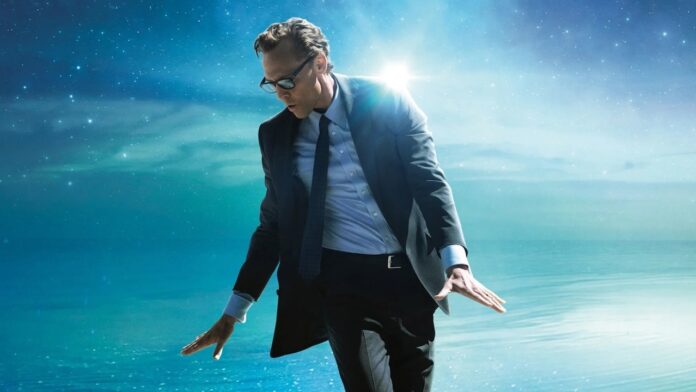In Philip Larkin’s poem “Ambulances”, a particular line continues to resound through the years. As the members of the public watch “a wild white face” get carried into an ambulance, they “sense the solving emptiness that lies just under all [they] do”. Beneath all the bustle of life, we are aware of the eventuality of death that lies in the peripheries and how quickly it can suddenly overwhelm. So we live life to the best of our ability, hoping that when it does come knocking we’ve done all we wanted and experienced all the joy we could.
Mike Flanagan’s The Life of Chuck is about the ordinary life of Charles Krantz (played by Tom Hiddleston, Jacob Tremblay and Benjamin Pajak at different points in Chuck’s life), from the beginning all the way till the end. But we don’t start at the beginning, we start at the end, in the final act of Chuck’s life, though it’s confusing because most of the characters don’t know who Chuck is. How are these individuals connected to Chuck, and why can’t they remember him? The answer becomes apparent in the final part of the film (though it is Act 1 of Chuck’s story), but it was delivered in such a hamfisted way that it feels like the movie didn’t trust us enough to understand Walt Whitman’s beautiful words.
It’s a difficult movie to review because I can see how many would actively dislike it. The movie is corny and overly saccharine, and there’s this ardent desire to bash us over the head with the refrain of how life is meaningful. I mean, there’s even a scene where Mark Hamill’s Albie monologues about the art and beauty of math. The inclusion of the narrator is a mixed effort: at times the narration fits perfectly and other times it feels excessive and unnecessary. The movie also ends on a fairly abrupt note, with Tremblay’s version of Chuck, the version that we have spent the least time with over the course of the film, leaving us a tad emotionally disconnected from the film’s ending.
However, I can’t bring myself to be mad and cynical at how life-affirming the movie wants to be, mainly because there are parts to the film that genuinely moved me. I love how dancing is the motif that connects most of the story together, and how the characters use dance as a way to deal with loss. Chuck’s grandmother taught him to dance because she loved dancing and it brought her joy; he continued because he felt that joy too, and it helped him through the tough times in his life. The centre piece of the film – Hiddleston and Annalise Basso’s extravagant dance in the middle of a street – is truly the most joyous part of the film. There’s such a giddy sense of bliss – emphasized by the golden hues of the sunset that colours everything – which is especially apt because it comes across as the climax of both the film and Chuck’s life.
What the movie gets absolutely right is the sudden emptiness that follows such a feeling of exuberance. Chuck’s on the top of the world after his dance, but at the end he’s just standing by himself in the middle of the street, walking back to his hotel room alone. Me and my husband have often talked about this, of our fear to be so effusively happy because of the knowledge of the sadness that is bound to follow. We live for these brief moments of wide-eyed joy that we maybe experience in a handful of moments, and that has to be enough to tide us through the suffering and darkness that awaits.
As a Tom Hiddleston superfan – I’m not even joking I’ve loved the man since the first Thor movie – I do feel a bit cheated because Hiddleston’s barely in this film, the same goes for Chiwetel Ejiofor and Karen Gillan. I would have loved more insight into Chuck’s adult life, but this is probably a source material issue more than anything. Flanagan might have felt obliged to follow King’s novella fairly closely, though we would have benefitted from a movie that deviated more.
Nonetheless, any movie that’s able to draw tears from me and make me think about the value of my ordinary life deserves some applause, even if it’s not a standing ovation.
REVIEW SCORE: 3.5/5

